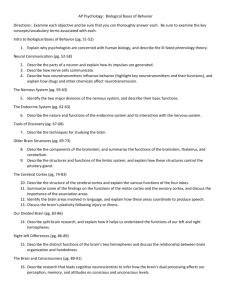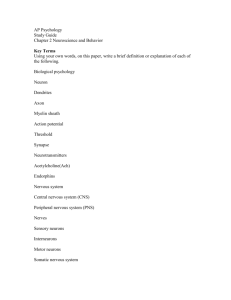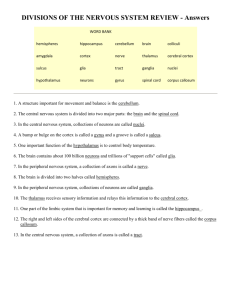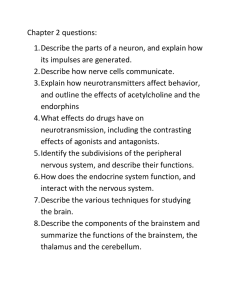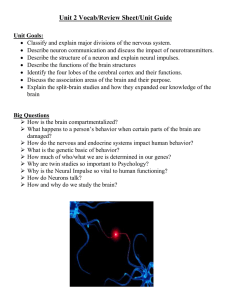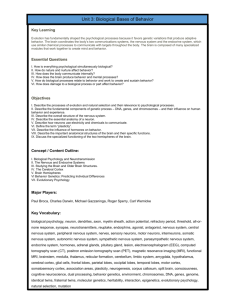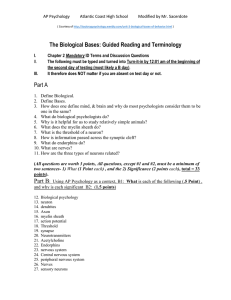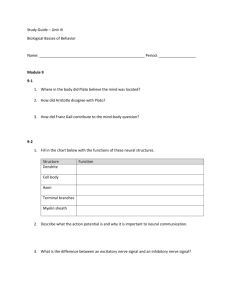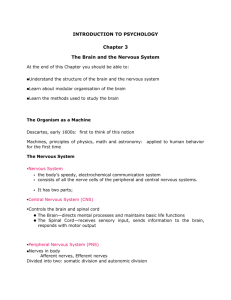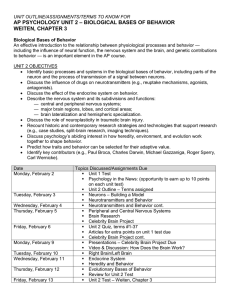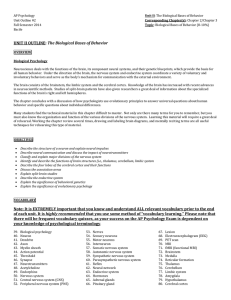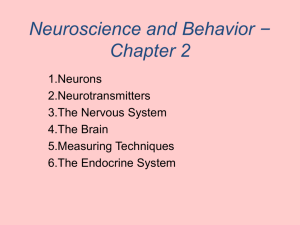File
advertisement
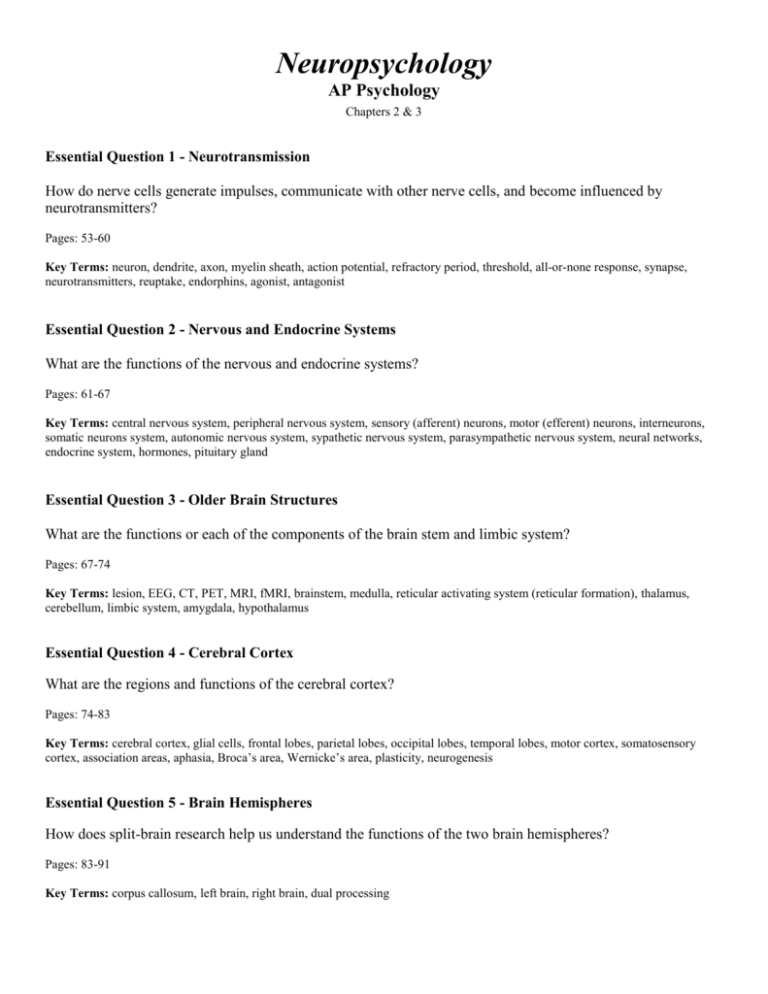
Neuropsychology AP Psychology Chapters 2 & 3 Essential Question 1 - Neurotransmission How do nerve cells generate impulses, communicate with other nerve cells, and become influenced by neurotransmitters? Pages: 53-60 Key Terms: neuron, dendrite, axon, myelin sheath, action potential, refractory period, threshold, all-or-none response, synapse, neurotransmitters, reuptake, endorphins, agonist, antagonist Essential Question 2 - Nervous and Endocrine Systems What are the functions of the nervous and endocrine systems? Pages: 61-67 Key Terms: central nervous system, peripheral nervous system, sensory (afferent) neurons, motor (efferent) neurons, interneurons, somatic neurons system, autonomic nervous system, sypathetic nervous system, parasympathetic nervous system, neural networks, endocrine system, hormones, pituitary gland Essential Question 3 - Older Brain Structures What are the functions or each of the components of the brain stem and limbic system? Pages: 67-74 Key Terms: lesion, EEG, CT, PET, MRI, fMRI, brainstem, medulla, reticular activating system (reticular formation), thalamus, cerebellum, limbic system, amygdala, hypothalamus Essential Question 4 - Cerebral Cortex What are the regions and functions of the cerebral cortex? Pages: 74-83 Key Terms: cerebral cortex, glial cells, frontal lobes, parietal lobes, occipital lobes, temporal lobes, motor cortex, somatosensory cortex, association areas, aphasia, Broca’s area, Wernicke’s area, plasticity, neurogenesis Essential Question 5 - Brain Hemispheres How does split-brain research help us understand the functions of the two brain hemispheres? Pages: 83-91 Key Terms: corpus callosum, left brain, right brain, dual processing Essential Questions 6 - Predicting Individual Differences What is the interaction between heredity and environment? Pages: 95-106 Key Terms: chromosomes, DNA, genes, genome, identical (monozygotic) twins, fraternal (dizygotic) twins, temperament Essential Questions 7 - Evolutionary Psychology How do evolutionary psychologists use natural selection to explain individual differences? Pages: 107-113 Key Terms: evolutionary psychology, natural selection, mutation, gender
